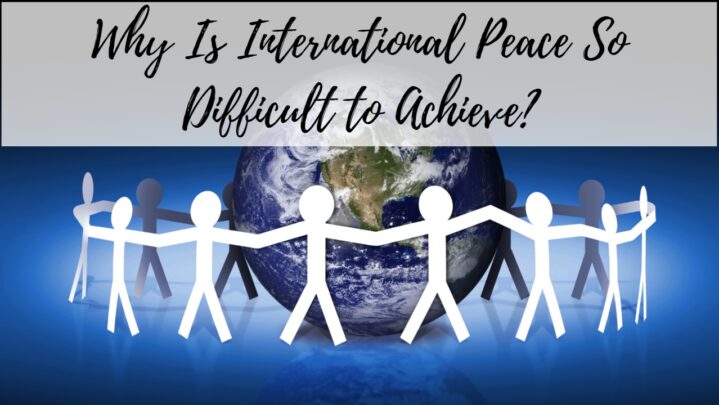International peace is difficult to accomplish for a variety of reasons, some of which are addressed here.
For starters, nations have conflicting interests, which frequently result in disputes and wars. Countries have varied political, economic, and strategic goals that occasionally collide. For example, when one nation attempts to expand its territory or resources, it may provoke war with another nation that perceives such moves as threatening. These clashing interests foster an atmosphere of distrust and antagonism, which frequently feeds wars and impedes peace attempts.
Second, states’ thirst for strength and supremacy is another impediment to world peace. Countries frequently pursue aggressive foreign policies in order to increase their influence and control over others.
Military invasions, economic sanctions, or other types of pressure might be used. Such activities frequently result in retaliation from the targeted country, which can evolve into full-fledged conflicts and wars.
Third, fundamental cultural and theological differences frequently lead to misunderstandings and hostility across nations. These differences might materialize in ethnic or religious disputes, which are typically difficult to reconcile. Historical grudges and injustices also have an important role in prolonging hostilities and impeding peace attempts.
To summarize, world peace is a complicated and difficult aim that demands a collaborative effort from all states. Addressing the underlying causes of disputes and encouraging mutual respect, understanding, and collaboration are essential steps toward creating long-term peace.





